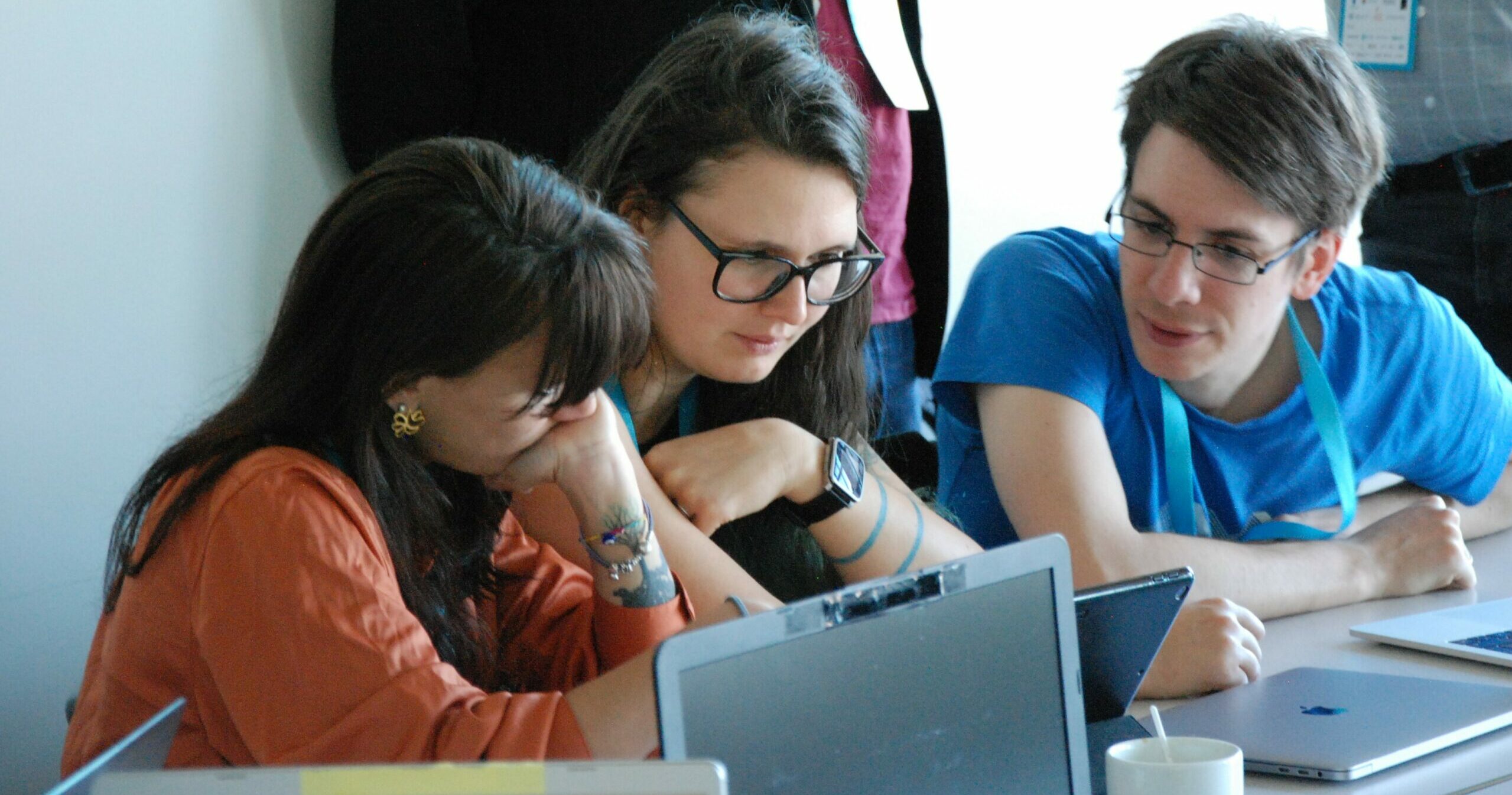Dataharvest – the European Investigative Journalism Conference is an opportunity to learn from your peers, network, and pick up a new skill. However, conference sessions are only 75 minutes long, and participants often wish they had more time to practice a newly acquired skill. This is why we’re offering four different full-day, hands-on masterclasses on Thursday, 22 May 2025 (the day before the official conference progamme kicks off)!
If you want to stay up to date with the newest OSINT tools and methods, brush up on your corporate investigation skills, or learn the basics of coding with R or spatial analysis with QGIS, book your masterclass ticket!
Please note that a special ticket is needed to attend a masterclass (on top of your conference ticket). Also, each masterclass is a full-day event (10 am – 5 pm), and you can attend only one masterclass at a time (i.e. you cannot do R programming in the morning and join the QGis group in the afternoon).
This year, you can choose among the following activities (a detailed schedule and working programme of the masterclasses will be published closer to the event):
Hack your way into a big dataset with R.
R is one of the most useful programming languages in data journalism. You may have heard of it, maybe even tried it a little and found the learning curve too steep. If so, this session is for you.
We are going to spend the day looking at European Environment Agency’s EPRTR (European Pollutant Release and Transfer Register) data – it’s a lot of data, and some of it is quite messy. It contains dozens, probably hundreds, of potential lines of investigation to be explored – and that’s what we’re going to do.
By the end of the day, you will know how to import data in an R environment, filter it, reshape it, and interrogate it. You will be able to make some basic graphs. Above all, you will be on the way to finding stories in the day’s chosen data, and be able to take your script away and use it again, or adapt it to other datasets.
We will assume that you are familiar with spreadsheets, but that you have no knowledge of R. You will not need to install anything – everything will be run on cloud instances of R.
If you’re already advanced with R, it is still worth coming along to use and share what you know, to support others, and to learn something new.
(If you already have a dataset you want to work with – bring that too!)
Trainers: Jonathan Stoneman and Léopold Salzenstein (Arena for Journalism in Europe)
Spatial analysis with QGIS
If you’re investigating deforestation, (illegal) mining activities in nature-protected areas, or nature loss, QGIS is a great tool to add to your investigative toolkit. Participants will learn where to find different types of geospatial data, including satellite imagery from open sources, and how to open, visualize, and manipulate them using QGIS to achieve investigation goals. Participants will work on real data from previous investigations done by the Pulitzer Center’s Data and Research Team. No particular knowledge of QGIS is needed to participate in this masterclass, and it is suitable for those who have not used QGIS before and those who know only the basics. Before coming to the session, please install QGIS on your laptops and make sure it works. Download from: https://www.qgis.org/en/site/forusers/download.html
If you encounter issues during installation, this guide might be helpful: https://www.qgis.org/resources/installation-guide/
Trainers: Kuang Keng Kuek Ser, Federico Acosta Rainis and Fernanda Buffa (Pulitzer Center)
Follow the Money to detect corrupt practices
Peer into the murky underworld of financial crime in this masterclass on how to detect corrupt practices and laundered bribes. Using practical examples, we will explore how to approach different types of corruption investigations and some of the key techniques and datasets you’ll need to develop these stories, including:
– Common origins of corruption and money laundering investigations
– Key sources of data and where to find them
– How to read the telltale signs of corruption and laundered kickbacks
– How to avoid the dangers and pitfalls of these types of investigation
While investigating corruption and money laundering can take a lifetime to master, this class will introduce you to the skills you need to hold the world’s rich and powerful to account. You’ll need a laptop and your brain!
Trainers: Caroline Henshaw and Simon Bowers (Finance Uncovered)
Take your research skills to the next level with OSINT tools
How do you find people and information online, verify an event’s geolocation, detect AI deepfake images and audio, or identify disinformation? This masterclass will help you identify the best OSINT tools and methods to help your investigations.
Trainers: Marcus Lindemann (autoren(werk)) and Lea Weinmann (Süddeutsche Zeitung)
Please note: All the masterclasses have a capacity of only 50 people, so secure your spot as early as possible. Also, booking the masterclass with your ticket is a bit cheaper than booking it at a later stage. If you have any questions about masterclasses, please write us at info@dataharvest.eu.

